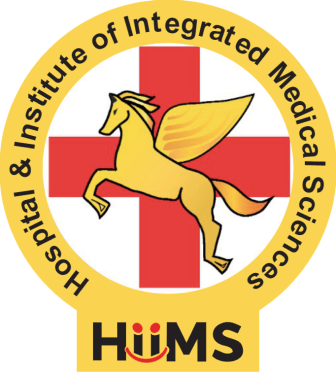Fatty liver symptoms often develop quietly, making this condition one of the most overlooked liver problems in adults today. The liver, our body’s detox powerhouse, can accumulate excess fat due to poor diet, sedentary lifestyle, or underlying medical conditions. While it may seem harmless initially, ignoring these signs can lead to serious complications, including inflammation, scarring, or liver failure.
Understanding the early symptoms of fatty liver is crucial for timely intervention. Detecting this condition early gives you the opportunity to take corrective measures and explore effective fatty liver treatment options before the liver suffers permanent damage.
Common Fatty Liver Symptoms
Fatty liver can be silent for years, but certain signs often signal its presence. Recognizing them early can help prevent progression. Key fatty liver symptoms include:
- Fatigue and weakness
- Abdominal discomfort
- Unexplained weight gains or bloating
- Nausea or digestive issues
- Yellowing of the skin or eyes (jaundice) in severe cases
Sometimes, symptoms of fatty liver may be subtle and easily mistaken for other health issues. That’s why regular health check-ups and liver function tests are essential, especially if you have risk factors like obesity, diabetes, or high cholesterol.
Why Fatty Liver Happens
The primary cause of fatty liver is the accumulation of fat within liver cells. Several factors contribute to this:
- Unhealthy diet: Diets high in sugar, refined carbs, and saturated fats
- Obesity: Excess body weight increases fat deposition in the liver
- Diabetes or insulin resistance: Interferes with normal fat metabolism
- Excess alcohol consumption: Can damage liver cells and trigger fat build-up
- Medications: Long-term use of certain drugs may contribute to fat accumulation
Understanding how to cure fatty liver starts with identifying these risk factors and making sustainable lifestyle changes.
Fatty Liver and Its Potential Complications
Ignoring fatty liver symptoms can lead to inflammation (steatohepatitis) and scarring (fibrosis), which may progress to cirrhosis. Severe cases may impair liver function, leading to complications like liver failure. Early intervention can prevent these outcomes and promote liver recovery.
Fatty liver is also associated with other health issues, including high blood pressure, high cholesterol, and cardiovascular problems. Addressing the condition early improves overall health and reduces long-term risks.
How to Identify Fatty Liver Early
Since fatty liver can be symptomless in its early stages, early detection is vital. You may notice:
- Persistent fatigue
- Mild discomfort in the upper right abdomen
- Slight jaundice or paleness in stools
- Unexplained weight fluctuations
Regular liver function tests and imaging studies like ultrasound are effective tools for diagnosing fatty liver before serious damage occurs.
Fatty Liver Treatment and Lifestyle Changes
While there is no one-size-fits-all cure, several approaches can improve liver health and manage fat accumulation. Effective fatty liver treatment includes:
- Dietary changes: Focus on fresh vegetables, fruits, lean proteins, and whole grains while avoiding processed foods, excessive sugar, and saturated fats
- Exercise: Regular physical activity helps reduce liver fat and supports overall metabolic health
- Weight management: Gradual and sustainable weight loss is key to improving liver function
- Limiting alcohol: Reduces liver stress and prevents further fat accumulation
- Regular monitoring: Periodic liver function tests to track improvement
For many patients, combining lifestyle changes with medical guidance is the most effective way to manage fatty liver and prevent long-term complications.
Comprehensive Treatment for Disorders
Alongside the focused care we provide for fatty liver, the medical team at Jeena Sikho HiiMS also manages a wide range of other long-standing conditions. Our doctors treat heart-related concerns, diabetes, liver disorders, jaundice, thyroid issues, digestive disturbances, hypertension, arthritis, and many more chronic ailments that often run silently for years. Patients usually come to us for one problem but later discover that several underlying issues were connected, and addressing them together makes the recovery journey smoother.
When to See a Doctor
Consult a healthcare professional if you notice persistent fatty liver symptoms or have risk factors such as obesity, diabetes, or high cholesterol. Early intervention can help prevent the progression to more serious liver conditions. At Jeena Sikho HiiMS, doctors focus on early detection, guidance on how to cure fatty liver, and creating personalized lifestyle plans to support liver recovery naturally.
Conclusion
Recognizing fatty liver symptoms early is essential for preventing long-term liver damage. Understanding symptoms of fatty liver, addressing the root causes, and seeking timely fatty liver treatment can make a significant difference in overall health. With proper guidance, lifestyle changes, and medical monitoring, it is possible to improve liver function and restore balance to the body.
If you experience signs of liver stress or have risk factors, don’t wait early action is key. Jeena Sikho HiiMS offers comprehensive support to help patients manage fatty liver naturally and maintain long-term liver health.
FAQs
1. What are the most common fatty liver symptoms?
Fatigue, mild abdominal discomfort, digestive issues, unexplained weight changes, and jaundice in severe cases are common fatty liver symptoms.
2. How can fatty liver be treated naturally?
Lifestyle changes such as a balanced diet, regular exercise, weight management, and avoiding alcohol are effective ways to manage the condition.
3. Can fatty liver lead to serious complications?
Yes. Untreated fatty liver may progress to inflammation, fibrosis, cirrhosis, or liver failure. Early intervention is critical.
4. How do I know if I have fatty liver?
Regular liver function tests and imaging studies like ultrasound can detect fat accumulation even before symptoms appear.
5. Is weight loss important for fatty liver treatment?
Yes. Gradual and sustainable weight loss improves liver function and reduces fat accumulation, making it an essential part of fatty liver treatment.

